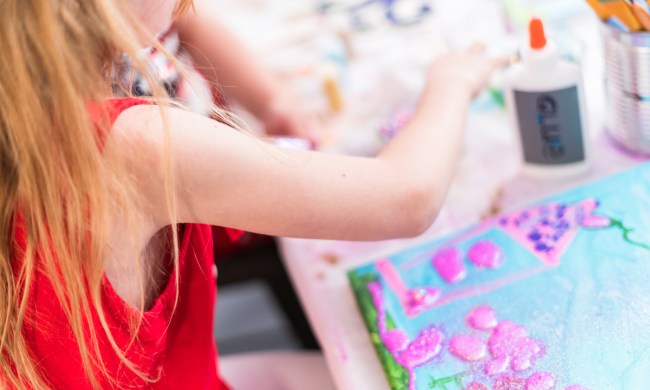The internet is the ultimate double-edged sword for teenagers. Sure, it makes researching book reports a whole lot simpler, it can provide hours of online streaming entertainment, and even opens up opportunities to communicate with friends across the world. On the other hand, the ability to hide behind a computer and converse with someone you do — or don’t — know without repercussions can result in some rather unpleasant interactions.
Cyberbullying is, unfortunately, a modern reality for our teens. It can take place publicly on social media platforms, via gaming forums, or by direct message. Regardless of the medium, its effects can damage an adolescent’s mental and physical wellbeing — making it crucial for caregivers to proactively talk to their children about why it happens, how it happens, and what to do if and when it happens. Read on to find out what you need to know about cyberbullying in teens.

Signs of cyberbullying in teens
All forms of bullying are hurtful. Cyberbullying is a different kind of beast, though. It can be especially sneaky — as fast-typing “trolls” can feel less inhibited to pick on someone from the comfort of their couch and behind the safety of a computer screen. Moreover, since this type of antagonizing behavior happens on the World Wide Web — for everyone to see — it can feel like, as a victim, you are being unfairly exposed — and the truth is: You are.
Cyberbullying doesn’t just bruise a kid’s ego. It can have serious consequences, including:
- Depression and anxiety: No one wants to be treated poorly or degraded publicly. Getting bullied online causes a lot of stress for teenagers, and it can gradually and cumulatively lead to depression and anxiety issues. This is not your typical teenage angst; note that if your child is depressed and has spoken about self-harm, it’s important to seek professional help.
- Other emotional effects: Getting bullied online can lead to acute or perpetual feelings of shame, humiliation, sadness, and anger.
- Low self-confidence: Cyberbullies are good at making teenagers feel less than worthy; whether it’s one hurtful comment or nonstop negativity, it can seriously impact your child’s sense of self-esteem.
- Poor school performance: Just like physical bullying can take a toll on a child’s school performance, so can cyberbullying. If your academically minded student is suddenly falling behind in classes or losing interest in hobbies, you’ll want to investigate the causes for this behavior.
- Turning to unhealthy coping mechanisms: Cyberbullying can be the catalyst that causes a teenager to turn to unhealthy and unsafe coping mechanisms like alcohol and drugs.
- Physical symptoms: Cyberbullying can result in loss of sleep, loss of appetite, stomach troubles, and more. The stress can cause all sorts of ailments. Furthermore, it can fuel other unhealthy behaviors. For example, if a cyberbully teases physical appearance or weight, a teenager may decide to take drastic dieting measures.

What to do — and what to avoid
Fortunately, there are a few proactive and reactive steps you can take to help your child face cyberbullying. Here are some factors to consider:
- Hold off on social media: You have to actively decide when you will allow your child to join social media platforms and public online forums. Per most social media companies, kids under the age of 13 aren’t even allowed to have their own accounts — so this should be the absolute minimum age for participating in social media. However, you know your child best.
- It is never a bad idea to wait until they are a bit older: It takes a certain level of maturity and perspective to be able to can handle the interpersonal challenges that come with having a digital footprint. And the reality is: The less exposure they have, the less likely cyberbullying is affecting them.
- Talk about social-media safety: Once your children are on social media platforms, it’s important to establish guidelines. Every picture they post, comment they make, or detail they reveal could have consequences. They need to understand that internet privacy might as well be a myth, and their social footprint is everlasting.
- Avoid engaging: It can be tempted for a child to reply to a cyberbully with similar tactics. But throwing “comment punches” will just perpetuate the issue. Instead, talk to your teen about walking away. Oftentimes, cyberbullies poke, prod, and look to elicit a reaction; don’t give them the satisfaction and don’t allow your child to stoop to that level.
- Report and block: If your child is being bullied online, the offending behavior should be reported, and the offending person should be blocked.
- Encourage kindness online and IRL: A big lesson kids need to understand: If you wouldn’t say it to someone’s face in real life, don’t say it online. The potential for anonymity makes cyberbullying easy for some. Practice what you preach, as a parent, and show kindness and respect in all forms of communication.
- Get authorities involved: Cyberbullying can have serious consequences. If any violent or harmful threats are being made, or if predatory behavior becomes an apparent danger, get law enforcement involved.
- Don’t delete all the evidence: A gut reaction from a teen might be to delete a nasty comment, taunting text, or threatening email. But before you erase the evidence, screenshot it in case you need to pass on this behavior to your child’s school or the authorities. Note if your child is sent a nude photo from another underage person, this cannot be shared, printed, or saved. Notify the police and then delete your copies immediately.
- Don’t take away technology: If your teen experiences cyberbullying, you might be tempted to cut the cord completely and take away their cell phone or computer to protect them, but this doesn’t help in the long run. This “punishment” may make them less open to sharing problems with you the next time.
- To monitor or not to monitor: This is a debatable point. Some parents feel it’s their responsibility to monitor their child’s social media activity. Others are worried it’s an invasion of privacy. You want to strike a balance between healthy involvement and helicopter snooping. This is why setting up rules in advance is so important.
While the internet and social media have opened up so many doors, they also cause a lot of unnecessary cruelty. You have to feel confident that your teen is ready mentally and emotionally before allowing them to explore social media and other public forums. Talk about cyberbullying so they understand how to identify it, and always encourage your kiddos to be kind communicators.


